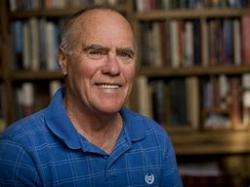Last weekend, a father charged out of the stands during a high school wrestling match and attacked his son’s opponent.
I have seen many things happen during my many years of coaching and watching high school/college wrestling matches. But this past Saturday, a new and sad action occurred at a high school tournament in North Carolina.

Courtesy: Colorado Preps
During one of the matches, a father charged out of the stands and attacked his son’s opponent during the match. Other fans quickly subdued the father. The wrestler was not harmed, but the father was arrested and charged with assault.
That situation begs the question: Why do some parents overact?
Many years ago, I foolishly agreed to be the announcer for a regional spelling bee. It was a disaster because I don’t have the best diction. Finally, after the last word was called and a champion was crowned, I was abused verbally by a couple who spared no pronouncement of words and opinions about my performance.
Yes, I was awful, but they were wrong to act as they did. The scene may have been unusual then (back in the early 1990s), but sadly it’s common now.
Since reading about the angry father at the wrestling match (which, by the way, happened in the same gym where I wrestled decades ago), I have pondered what force would drive a man to attack a high school student. While I understand the emotion that athletics can create, I can’t understand the act of attacking a student. I’ve seen ire spilled at officials, scorekeepers, coaches, and other fans. I’ve also seen wrestlers act in an unsportsmanlike manner to other wrestlers. But a parent attacking a high school student is new to me.

Pennsylvania wrestlers in 1961 (photo, Lehigh Valley Wrestling History)
When I wrestled in that gym, few–if any parents–were present. Yes, adult fans, students, and teachers were present. Parents? Hardly at all. Most were too busy working in the cotton mill or elsewhere earning a living. Athletics was our business, and most parents learned about our exploits through dinner conversations.
Today, though, it’s very different. Many parents are over-invested in their children’s lives, and some become ‘helicopter parents,’ hovering over their offspring like a helicopter getting ready to land. I have long wondered why this is; and I’ve come to the conclusion that some parents view their children as a reflection of themselves. “If my child succeeds,” some think,” then I do, too.’ Obviously, the opposite is in play, too.
Thinking that way–and the actions that follow–does no good for parent or child. Last Saturday was an example of going too far. Show a keen interest in your children’s athletic efforts? Certainly! But remember, it’s always wise to sit on your hands and tie your tongue.














